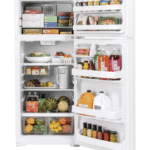Owning a home is one of the most significant investments you’ll ever make. But with great investment comes great responsibility—protecting your home from potential threats. Is buying a home security system an example of protecting your home against something specific? The answer is risk . Whether it’s theft, fire, or other hazards, a home security system plays a crucial role in safeguarding your property and loved ones.
In this guide, we’ll explore how investing in a security system helps mitigate risks, save money, and provide peace of mind. Let’s dive in!
Buying a Home Security System is an Example of Protecting Your Home Against _______?
Options:
A) Insurance
B) Deductibles
C) Warranties
D) Risk
Correct Answer: D) Risk
Explanation:
To understand why “risk” is the correct answer, let’s break down the other options:
- Insurance: Insurance provides financial compensation for damages, loss, or death, but it doesn’t actively prevent harm.
- Deductibles: Deductibles are the portion of a loss that must be paid by the insured, which is unrelated to prevention.
- Warranties: Warranties guarantee product quality and durability, focusing on repairs or replacements rather than protection.
Risk , on the other hand, refers to the potential for harm, loss, or damage to your home and belongings. A home security system is specifically designed to mitigate these risks, making it the correct answer.
What is a Home Security System?
A home security system is a combination of hardware and individual protection approaches designed to secure homes. These systems use advanced technology to detect and deter threats, providing homeowners with peace of mind.
Components of a Home Security System:
- Alarms: Sound alerts when unauthorized entry or suspicious activity is detected.
- Locks: Smart locks add an extra layer of control over who enters your home.
- Cameras: Surveillance cameras monitor activity both inside and outside your property.
- Motion Detectors: Sense movement and trigger alarms when unexpected activity occurs.
Purpose:
The primary purpose of a home security system is to protect against risks such as:
- Burglary and theft
- Fire and carbon monoxide leaks
- Water damage
- Medical emergencies
By addressing these risks, a security system ensures your home remains safe and secure.
What Does Buying a Home Security System Protect Against?
When asked, “Is buying a home security system an example of protecting your home against ______,” the correct answer is risk .
But what exactly does “risk” mean in this context? It refers to the potential for harm, loss, or damage to your property, belongings, or family. A home security system is specifically designed to reduce these risks by deterring threats, detecting intrusions, and offering peace of mind.
For a deeper dive into how security systems align with risk management strategies, check out: How is Having a Security System for Your Home a Risk Management Strategy? .
Key Benefits of a Home Security System
1. Deterrence: Keeping Intruders Away
One of the primary functions of a home security system is to deter criminals. Visible deterrents like cameras, motion-activated lights, and alarm signs send a clear message: “This home is protected.”
- How it works: Burglars avoid homes that appear well-protected.
- Real-world impact: According to the FBI , homes without security systems are up to 300% more likely to be targeted. [Source: FBI Crime Data ]
Early Detection: Stopping Threats Before They Escalate
A security system doesn’t just deter—it actively detects threats and alerts you (and authorities) when something goes wrong.
- Components involved:
- Motion detectors
- Door and window sensors
- Glass-break sensors
- Surveillance cameras
- How it works: If someone tries to break in, the system triggers an alarm and sends notifications to your smartphone or monitoring service.
For more details on early detection systems, visit SafeWise .
3. Insurance Benefits: Reducing Financial Risk
Installing a home security system can also save you money. Many insurance companies offer discounts for homes equipped with security systems.
- Why insurers care: Secure homes are less likely to file costly claims.
- Savings potential: Discounts range from 5-20% on annual premiums.
Learn more about financial benefits at Consumer Reports .
4. Peace of Mind: Emotional Protection
Beyond physical protection, a security system provides peace of mind. Knowing your home is secure allows you to relax, whether you’re sleeping or traveling.
- Emotional benefits:
- Reduces anxiety about break-ins.
- Helps you feel confident leaving loved ones at home.
Understanding how security systems fit into broader risk management strategies can further enhance this peace of mind. Read more here: How is Having a Security System for Your Home a Risk Management Strategy? .
Additional Risks Addressed by Modern Systems
Modern home security systems protect against more than just burglary. Here’s a quick list:
- Fire and carbon monoxide leaks: Smoke detectors and CO sensors alert you to danger.
- Water damage: Smart water leak detectors prevent flooding.
- Medical emergencies: Panic buttons or medical alerts help elderly residents.
Why Invest in a Home Security System?
Some hesitate due to upfront costs, but the long-term benefits outweigh the expense:
- Crime Prevention: Homes with security systems are less likely to be targeted.
- Cost Savings: Insurance discounts and reduced risk of theft translate to savings.
- Increased Property Value: Secure homes are more attractive to buyers.
- Enhanced Safety: Protects both belongings and loved ones.
For practical safety tips, visit Family Handyman .
Conclusion: Protecting Your Home Against Risk
In conclusion, buying a home security system is an example of protecting your home against risk . These systems provide deterrence, early detection, financial savings, and peace of mind. By investing in a security system and adopting complementary safety practices, you can significantly reduce risks associated with homeownership.
To learn more about how security systems align with risk management strategies, read: How is Having a Security System for Your Home a Risk Management Strategy? .
Final Answer: Buying a home security system is an example of protecting your home against {Risk}















